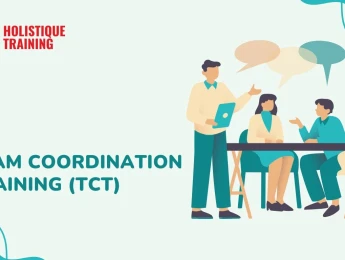In today's challenging business landscape, resilient leadership is crucial for navigating through uncertainty and achieving sustainable success. This course dispels the myth that tough management equates to toxic leadership. Instead, it focuses on cultivating influential management practices that foster collaboration, efficiency, and employee development. Participants will learn pragmatic approaches to strategic management, emotional intelligence, communication, and client relationship management, all aimed at driving results and customer satisfaction in demanding environments.
Upon completion of this course, participants will be able to:
- Strategically manage and analyse projects.
- Utilise Emotional Intelligence to invest in their team.
- Employ effective communication techniques for delegation and messaging.
- Identify client needs and establish clear goals.
- Ensure alignment with the organisational business model.
- Estimate project duration and budget using proven methods.
- Foster collaboration for problem-solving and decision-making.
- Implement project planning and control structures effectively.
- Set measurable objectives for excellent results.
- Develop and implement an efficient earned-value control system.
- Assess and mitigate project risks.
- Overcome psychological barriers in stakeholders.
- Anticipate, manage, and control project changes.
- Plan, implement, and control effective project closures.
This course is suitable for a diverse range of professionals, including:
- Programme and project managers aspiring for successful leadership.
- Employees seeking career advancement into management roles.
- Technical professionals transitioning into supervisory positions.
- Members of process improvement teams.
- Managers looking to rejuvenate their leadership practices.
- HR and learning and development professionals seeking practical tools for an organisational application.
- Engineers and technical professionals preparing for project leadership roles.
This course employs an immersive and interactive training methodology, combining lectures, practical exercises, and real-world case studies. Participants will engage in group discussions, role-playing scenarios, and hands-on activities to apply resilient leadership principles and techniques. The course also includes self-assessment tools and reflective practices to enhance personal growth and emotional intelligence. By working through real-world scenarios, participants will develop strategic management, risk assessment, and effective communication skills, ensuring they can successfully lead projects in demanding environments. This multifaceted approach guarantees attendees can immediately implement learned strategies to foster collaboration, efficiency, and employee development in their organisations.
Day 5 of each course is reserved for a Q&A session, which may occur off-site. For 10-day courses, this also applies to day 10
Section 1: Foundations of Resilient Leadership
- Understanding management theories and their application.
- Differentiating between project, program, and portfolio management.
- Exploring the balance between "hard" and "soft" skills in project management.
- Role modelling and contemporary management trends.
- Nurturing tough management practices without toxicity.
- Managing teams, tasks, and individuals for alignment and results.
- Meeting organisational demands and delivering purposeful outcomes.
- Estimating project resources, duration, and quality.
- Performance measurement and collaboration testing.
- Identifying and managing project stakeholders.
- Introduction to the Project Management Office (PMO) concept.
Section 2: Risk Management and Planning
- Identifying, assessing, and prioritising project risks.
- Conducting qualitative and quantitative risk analysis.
- Developing risk avoidance and contingency plans.
- Implementing risk tracking and reporting mechanisms.
- Documenting risk management plans and databases.
- Strategically prioritising personal and team deliverables.
- Utilising work breakdown structures and organisation breakdown structures.
- Managing triple constraints in project management.
- Implementing procurement planning strategies.
- Delegation, time management, and budget estimation.
Section 3: Effective Communication and Leadership
- Enhancing basic communication skills for project management.
- Building trust and fostering emotional intelligence in leadership.
- Providing feedback for team development and performance improvement.
- Executing project team management and performance monitoring.
- Meeting stakeholder expectations and maintaining project control.
- Implementing earned value management and quality assurance practices.
- Integrated change control and procurement administration.
Section 4: Adaptability and Continuous Improvement
- Embracing broad-spectrum leadership in dynamic business environments.
- Cultivating a culture of continuous improvement.
- Facilitating problem-solving and decision-making processes.
- Planning and executing effective project closures.
- Administrative and contract closure procedures.
- Conducting post-project evaluations and celebrating success.
Upon successful completion of this training course, delegates will be awarded a Holistique Training Certificate of Completion. For those who attend and complete the online training course, a Holistique Training e-Certificate will be provided.
Holistique Training Certificates are accredited by the British Assessment Council (BAC) and The CPD Certification Service (CPD), and are certified under ISO 9001, ISO 21001, and ISO 29993 standards.
CPD credits for this course are granted by our Certificates and will be reflected on the Holistique Training Certificate of Completion. In accordance with the standards of The CPD Certification Service, one CPD credit is awarded per hour of course attendance. A maximum of 50 CPD credits can be claimed for any single course we currently offer.
- Course Code PO4-109
- Course Format Classroom, Online,
- Duration 5 days














